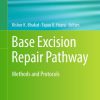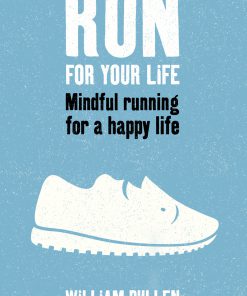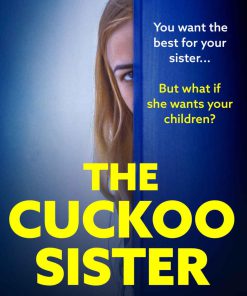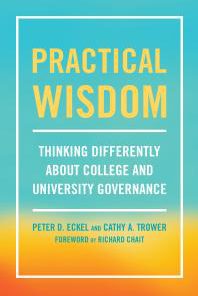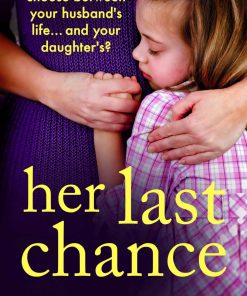Writing Differently 1st Edition by Alison Pullen, Jenny Helin, Nancy Harding ISBN 9781838673390 1838673393
$50.00 Original price was: $50.00.$25.00Current price is: $25.00.
Writing Differently 1st Edition by Alison Pullen, Jenny Helin, Nancy Harding- Ebook PDF Instant Download/Delivery: 9781838673390, 1838673393
Instant download Full Chapter of Writing Differently 1st Edition after payment

Product details:
ISBN 10: 1838673393
ISBN 13: 9781838673390
Author: Alison Pullen, Jenny Helin, Nancy Harding
Table of contents:
Chapter 1. Introducing
- Alison
- Jenny
- Nancy
- Alison
- Nancy
- Jenny
- Alison
- Jenny
- Alison
- Nancy
- Alison
- Further Reading
Chapter 2. Feminist Writing in a Gendered Transnational World: Women on the Move?
- Abstract
- The Ways Things Are
- Resistance in the Making …
- She Writes and the World Changes?
- References
Chapter 3. On the Fringe/At the Fringe: Fleshing Out Research
- Preview
- Notes
- Closing credits
- Curtain Closes
- Cutting the Fringe: taking meat off the bones, and extracting our pound of flesh
Chapter 4. Tractor Dad: From story to a scientific text, and back
- Abstract
- In the Beginning, There Was a Story
- Tractor Dad
- Connecting to the scientific community
- Story Writing in Research
- Story as ‘Art’ or ‘Science’
- The Scientific Article Format as an ‘Intellectual Bottleneck’
- Science Needs Stories
- Notes
- References
Chapter 5. Annotation
- Abstract
- Introduction
- Methodology
- Part 1: Core Texts
- Annotation for an Academic by Deborah N. Brewis
- Annotation for a Software Engineer by Aled James
- Annotation for a Medical Sonographer (Anonymous)
- Annotation for an Artist by Sarah Taylor Silverwood
- Part 2: Sister Texts
- A-1 Activism
- B-1 Time
- B-2 Expression
- C-1 Space
- C-2 Becoming
- D-1 Methodology
- E-1 Audience
- F-1 Art Practice
- F-2 Words and Image
- C-3 Sister texts: Concluding
- Acknowledgements
- Notes
- References
Chapter 6. Breaking with the masculine reckoning: An open letter to the Critical Management Studies Academy
- Abstract
- Introduction
- Self-portraits of Blind Painters
- The School of Dreams
- Emancipation Activism A-Call-to-Arms Écriture Féminine
- My Alms
- Theory
- The Pure Element of Fear
- The Axe Returns
- We Need a Dead (Wo)man to Begin
- Freedom
- Notes
- References
Chapter 7. When fiction meets theory: Writing with voice, resonance, and an open end
- Abstract
- Fictocriticism as a Call for Writing Differently
- Writing a Textbook Propelled by Fiction: A Novel Way of Writing
- At the Crossroads of Fiction and Theory – Three Reflections on Engaging in Writing
- Writing with Voice
- Writing with Resonance
- Writing with an Open End
- Writing Differently – A Way to Learn and to Engage in Learning
- Acknowledgements
- References
Chapter 8. Writing past and present classed and gendered selves
- Abstract
- Feminist Duoethnography and Memory Work
- Snapshots I: Working-class Good Girls
- Snapshots II: Learning to Labour (for the Academy)
- Snapshots III: Passing
- Remembrance and Reflexivity
- Conclusion: Memory, Meaning and Knowledge
- Notes
- References
Chapter 9. From Ethnography to Critical Management Studies: Facing the Street Performers’ Dilemmas
- Preface
- Investigating the Activity of Street Performers
- Coping With the Restrictions: Leaving the Ethnography
- Writing Differently: Moving to CMS
- Note
- References
Chapter 10. The political poetics of Mycelium
- Abstract
- Introduction Spores
- What Is a Mycelium?
- Who What Is Mycelium?
- Phases in the Life and Death of a Mycelium
- Expansion
- Cannibalism
- Witches’ Circle Formation
- Communication
- Mycelic Politics?
- Attack of the CORDYCEPS – Notes on Parasitic Strategies
- Attack of the Massospora cicadina – Notes on Parasitic Strategies
- Mycelic Writing
- Mycelic Performance and Ritual
- Conclusion Continuation
- Ten Easy Steps to Mycelify Yourself
- Bibliography:
- Books by Mycelium:
- Other Mycelic Writers
- Mycelified Quotations/Enhanced Poetic Readymades
Chapter 11. On silence and speaking out about sexual violence: An exploration through poetry
- Abstract
- References
Chapter 12. (Re)imagining the Activist Academy
- Abstract
- Questions, Queries, Reflections
- Answers, Solutions, Imaginations
- References
Chapter 13. Researching through experiencing aesthetic moments: ‘Sensory slowness’ as my methodological strength
- Abstract
- Introduction
- The Sensing Researcher Conducts Research S l o w l y
- Methodology
- The Three Aspects of ‘Sensory Slowness’
- Appreciating Sensory Cues in the Researcher–Researched Relationship
- Researching ‘Flesh in Relation to Flesh’
- Allowing Vulnerability to Flourish
Concluding Thoughts
References
About the Contributors
People also search:
writing differentiation strategies
writing differentiation
differentiated writing prompts
a different writing
differentiated writing strategies
You may also like…
Uncategorized
Curating Differently Feminisms Exhibitions and Curatorial Spaces 1st Edition Jessica Sjöholm Skrubbe
Science Fiction - Dystopian Fiction
Uncategorized
Science Fiction - Dystopian Fiction
Book of the Dead AESLI 00 1st Edition by VES Pullen ISBN B08CS3VDVF
Uncategorized
Uncategorized


